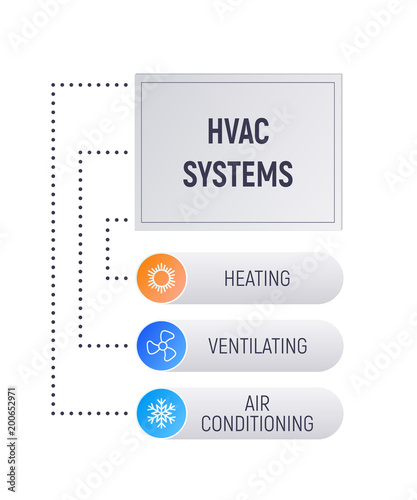Checking Out The Environmental Advantages Of Warm Pumps - A Sustainable Heating Option
Checking Out The Environmental Advantages Of Warm Pumps - A Sustainable Heating Option
Blog Article
Material By-Glass Borup
In an age where sustainability and power efficiency are paramount, numerous organizations seek green heating solutions. One such remedy is the heat pump.
A heatpump extracts the warmth in its surroundings and pumps it into your home, resulting in one of one of the most effective green central heating unit around. This procedure also creates absolutely no greenhouse gas discharges, making it an extremely lasting modern technology.
Energy Efficiency
Heat pumps are extremely power effective and require little maintenance. They make use of much less power than other heating systems and are by far the most environmentally friendly. They work well with roof solar and can usually pay for themselves in utility cost savings alone.
They can additionally provide air conditioning, which is wonderful for garage workshops, attic hangouts and bonus spaces, and home enhancements without extending the existing ductwork. They can even be used for retrofits in existing homes with hydronic (water-based) distribution systems such as low temperature radiators or glowing floors.
Look for https://www.cnet.com/home/smart-home/as-inflation-rises-save-money-around-your-home-with-these-27-tips/ with SEER and HSPF rankings that meet or go beyond Canada's minimum requirements, along with the criteria in your area. Higher scores imply higher performance, which saves you money in the long run and lowers your carbon footprint. You could also get approved for rebates and incentives! The most effective systems are those with a ground warmth exchanger for included efficiency. These units can absorb thermal energy from the ground during the winter and extract it in the summer.
Minimized Greenhouse Gas Emissions
Heat pumps operate on electricity and basically move heat from the air, even when it's chilly outside. pop over to this web-site are able to draw out the cost-free warmth trapped in air particles and move them inside your home, minimizing humidity while doing so.
Compared to gas heating systems, modern heatpump utilize less than one kilowatt of electricity per kilowatt of home heating power they produce. This makes them the most energy efficient heating option readily available with a COP (Coefficient of Efficiency) of 4 or more. By slashing the requirement for nonrenewable fuel sources, heatpump help reduce greenhouse gas emissions and cut other significant air toxins.
Building decarbonization is a worldwide necessary, and the heating and cooling industry is a vital vehicle driver of that process. Whether it's investor making internet no dedications, plan manufacturers setting exhausts restrictions, or lessees requiring greener rooms, electrical heatpump are being identified as a necessary remedy. They are a cost-effective way to lower carbon emissions by getting rid of the requirement for fossil fuels in buildings.
Adaptability
Heat pumps can be utilized in numerous kinds of homes and structures-- with or without ducts. They deal with hot-water radiators, air-conditioning and programmable thermostats. They can replace heaters or be set up in brand-new residences. They can work on photovoltaic panels, geothermal systems or even area heating resources like wastewater.
They're terrific at delivering even more heat per power device. For instance, an air-source heat pump creates approximately 3 or more heating units from each electricity unit it consumes.
Obtaining one of the most from your heat pump will depend upon your environment area and high quality of insulation. Look for versions with power STAR rankings and compare their SEER or HSPF specifications. In warmer climates, focus on SEER; in chillier regions, take into consideration a system with a higher HSPF score. Furthermore, purchase air securing and insulation to decrease the lots on your heatpump. That will certainly improve power performance and aid you reach your Web No goals much faster.
Biomass Boilers
Biomass boilers make use of timber pellets, chips or logs to produce warmth and warm water. They are a great choice for off-grid properties or those who wish to get off the gas grid.
As a standalone heating system, biomass can offer sufficient energy to keep your home warm all the time without the regular warm drop off of other renewable innovations. They can likewise be made use of in conjunction with solar panels to maximise savings and benefit from RHI repayments.
A downside of these systems is the ahead of time price and regular fuel distributions. Frequently, pellets will need to be blown into a gas store using a vacuum cleaner system or they can be by hand fed into the central heating boiler through a receptacle. Logs are usually self-sourced from neighboring woodland or gotten in bulk. Along with this, they require manual loading and may require cleansing on a regular basis.